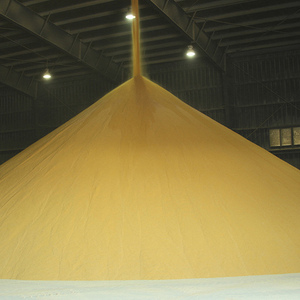Sen. Johanns urges FDA to reconsider proposed animal feed rule

April 18, 2014
BY Erin Krueger
Sen. Mike Johanns, R-Neb., has written Margaret Hamburg, commissioner of the Food and Drug Administration, urging the FDA to exempt distillers grain, raw agricultural commodities and other byproduct from a proposed rule that would add new requirements for ethanol producer and brewers that produce distillers grains, increasing the costs of these products for livestock producers.
The proposed rule, titled Current Good Manufacturing Practice and Hazard Analysis and Risk-Based Preventative Controls for Food for Animals, was published in the Federal Register on Oct. 29. The original comment period on the measure was scheduled to close Feb. 26. On Feb. 3, the FDA announced it would extend the comment period through Mach 31. According to information published to Regulations.gov under Docket ID FDA-2011-N-0922, the FDA received an estimated 2,129 comments on the proposal.
In his letter, Johanns notes that the “rigid framework” proposed by the FDA would substantially increase costs for industry participants with little, if any, expected benefit. “In particular, I am concerned about FDA regulation of byproducts used in animal food. Whether the byproducts are from ethanol plants, breweries, or human food manufacturers, these are an important part of the supply chain for animal food and help companies reduce waste and create additional value. However, the proposed rule included a number of new requirements that would have made the distribution of byproducts cost-prohibitive. That would endanger an economical food source, instead threatening to clog our landfills with nutritious feedstuffs. This in turn would raise production costs for our livestock producers, making them less competitive in the global economy,” he wrote.
Advertisement
Advertisement
“Food safety is a concern for all of us, but measured regulatory discretion is needed here. When FDA proposes a new animal food rule with a new comment period, I urge you to exempt raw agricultural commodities and these byproducts, which reach the animal food supply through a unique set of circumstances that does not warrant their inclusion in this rule,” Johanns continued.
A fully copy of the proposed rule is available on the Federal Register website here.
Advertisement
Advertisement
Related Stories
The U.S. Energy Information Administration maintained its forecast for 2025 and 2026 biodiesel, renewable diesel and sustainable aviation fuel (SAF) production in its latest Short-Term Energy Outlook, released July 8.
XCF Global Inc. on July 10 shared its strategic plan to invest close to $1 billion in developing a network of SAF production facilities, expanding its U.S. footprint, and advancing its international growth strategy.
U.S. fuel ethanol capacity fell slightly in April, while biodiesel and renewable diesel capacity held steady, according to data released by the U.S. EIA on June 30. Feedstock consumption was down when compared to the previous month.
XCF Global Inc. on July 8 provided a production update on its flagship New Rise Reno facility, underscoring that the plant has successfully produced SAF, renewable diesel, and renewable naphtha during its initial ramp-up.
The U.S. EPA on July 8 hosted virtual public hearing to gather input on the agency’s recently released proposed rule to set 2026 and 2027 RFS RVOs. Members of the biofuel industry were among those to offer testimony during the event.
Upcoming Events










